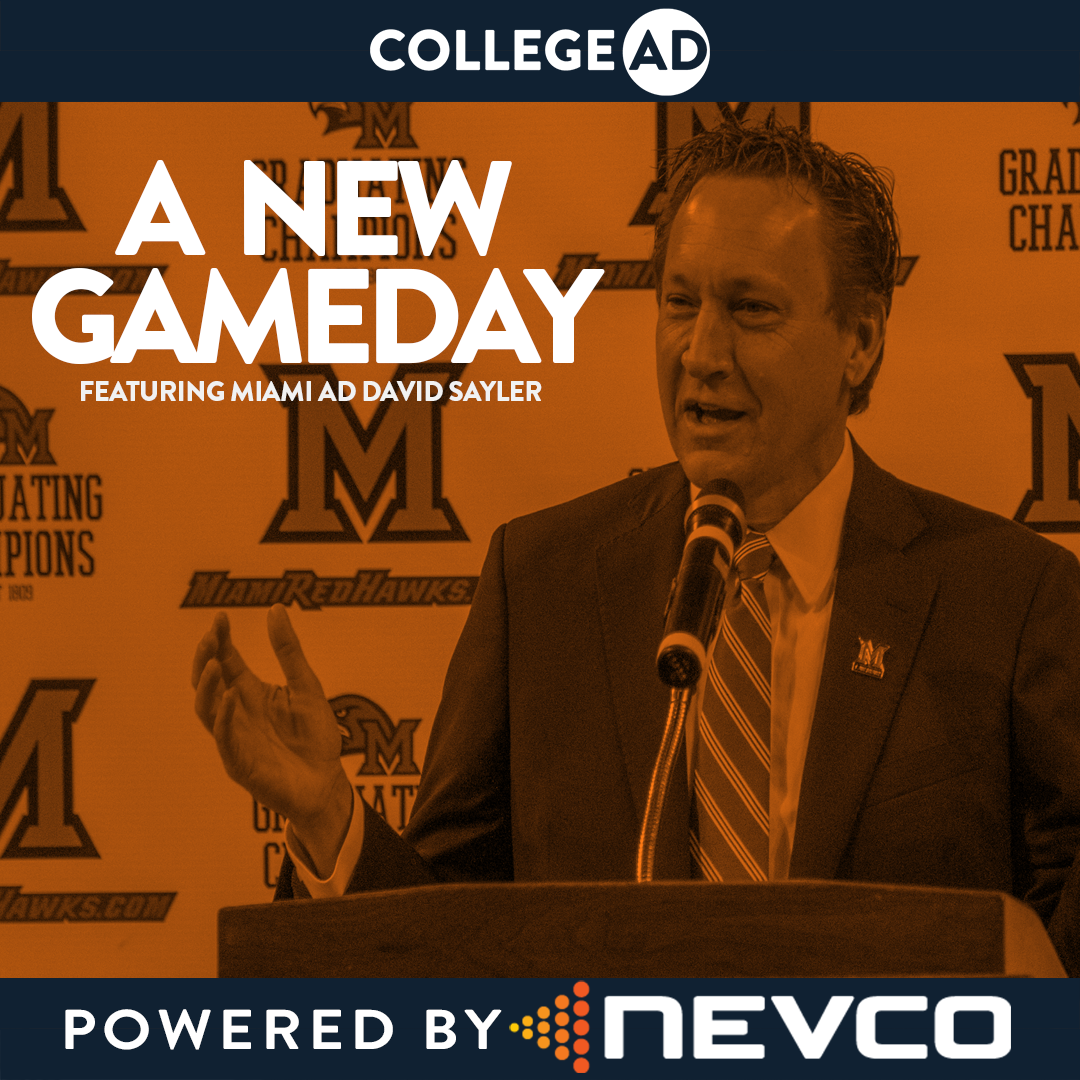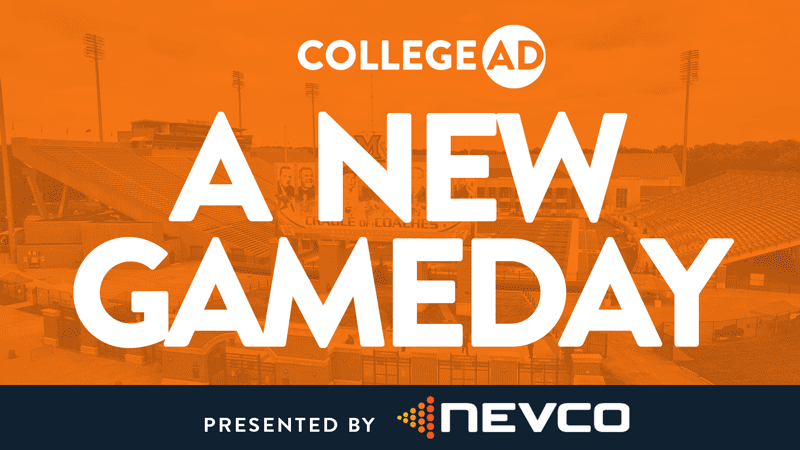Powered by Nevco, A New Gameday is a podcast from CollegeAD focusing on how athletic departments are working towards the eventual return of sports and what that will look like on game day.
 David Sayler has been Miami University’s athletic director since 2013 and was really looking forward to what fall football was going to mean for the university this year. He joined A New Gameday to talk about what spring ball may look like, the importance of messaging, and taking things day by day.
David Sayler has been Miami University’s athletic director since 2013 and was really looking forward to what fall football was going to mean for the university this year. He joined A New Gameday to talk about what spring ball may look like, the importance of messaging, and taking things day by day.
David Sayler started the conversation by admitting he feels dizzy with all of the changes that have marked 2020. Sayler said he’s been running through different scenarios and working towards communicating with everyone. Sayler says consistent messaging has been key, keeping everyone up-to-date to make the best decisions is currently his focus. That consistency, he feels, leads to the health and safety of the student-athletes staying the number one priority. Miami is part of the Mid-American Conference, which voted to delay the start of fall sports. He explained that back in March everyone canceled the rest of the spring sports season, a lot of the Mac AD’s started talking about the concern that was present, not just for fall, but even for the next four years.
He says they started having some discussions about whether or not they should be functioning as a league the same way in terms of the number of games they play, how many non-conference games, how many teams go to the conference that they offer, should the Mid-American Conference shrink travel rosters, etc. He explained that they came to some conclusions and put those out to the membership over the summer, hoping to still play fall ball.
After all signs were pointing to a great year for Miami, he said that half of his struggle has just been trying to lift the staff back up after the devastation of losing those games and all the different things that those games were going to bring their community.
“We’re not going to get those games back. Unfortunately, whatever the spring schedule is going to look like, it’s most likely going to be conference only. Some of those teams that were not playing, they’re all still planning to play this fall at this point.”
He has had discussions with his staff about how Miami can refocus and get ready for basketball and hockey. Hockey is Miami’s second-best ticketed revenue sport. Both of those sports are slated to start in October, but he believes they will start by Thanksgiving at the earliest.
With all of the changes taking place so rapidly, Sayler and his team have adapted to new forms of communication, like Zoom. David Sayler says he’s done video conferencing with various constituency groups, and his coaches have done their own sessions with donors. They’ve also stepped up traditional grassroots phone calls.
During the “downtime” of no athletic contests, Sayler said his staff has worked on ways to keep fans engaged. He said their social media staff has put lots of content out. Coaches have taken control of a lot of their social media accounts, and they put out regular video content. He said, during the pandemic, they also faced the challenge of position eliminations and they lost people in social media. The workload got stretched and people picked up the slack, they all believed it was important that fans still hear from folks inside his athletic department.
Sayler said those social media discussions have extended to what things will look like when the game day returns. He explained that they are working on ways to keep fans engaged through broadcast content as well as social media content. He understands that even if fans can return to the stands, not every fan will be comfortable doing that just yet. He hopes they see their commitment to safety. They are doing cashless transactions, revamped online ticketing, and looking at the parking situation.
David Sayler explained that their relationships with partners have become even more important. He said Miami outsourced Van Wagner and they’ve been fantastic partners through this time. They’ve been in communication with ESPN and he believes their spring games will be televised. He said those televised games will help with fan engagement, even if the stands are empty. Until then, they’ve done social media engagement with their partners and worked to connect them to each other so they can still engage with the community.
He closed the conversation by explaining the one message he’s really trying to dive home is to be open to change. Things aren’t really in the hands of the coaches or even the administration right now. Local county health officials, university presidents, conference commissioners, and NCAA are making decisions. He says everyone has to be open to change and remain flexible.

